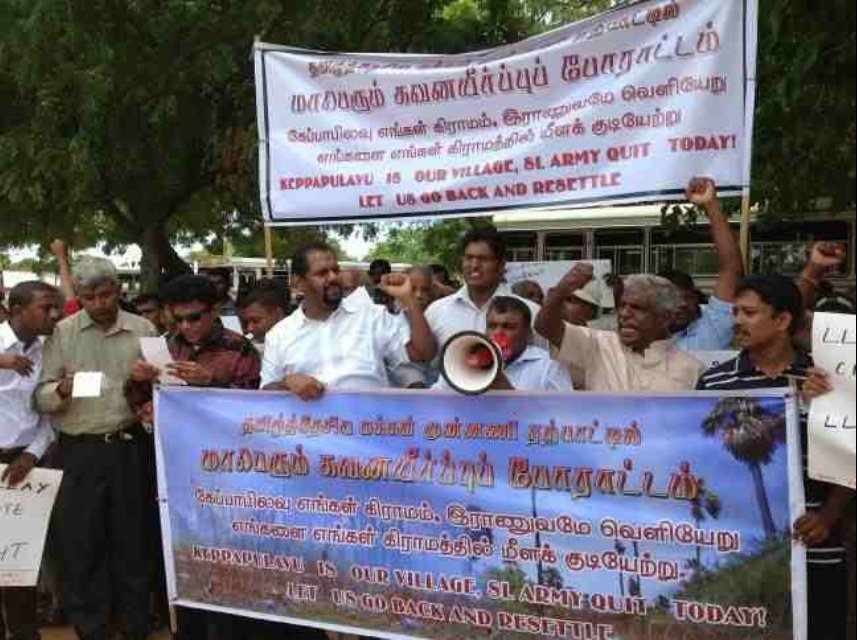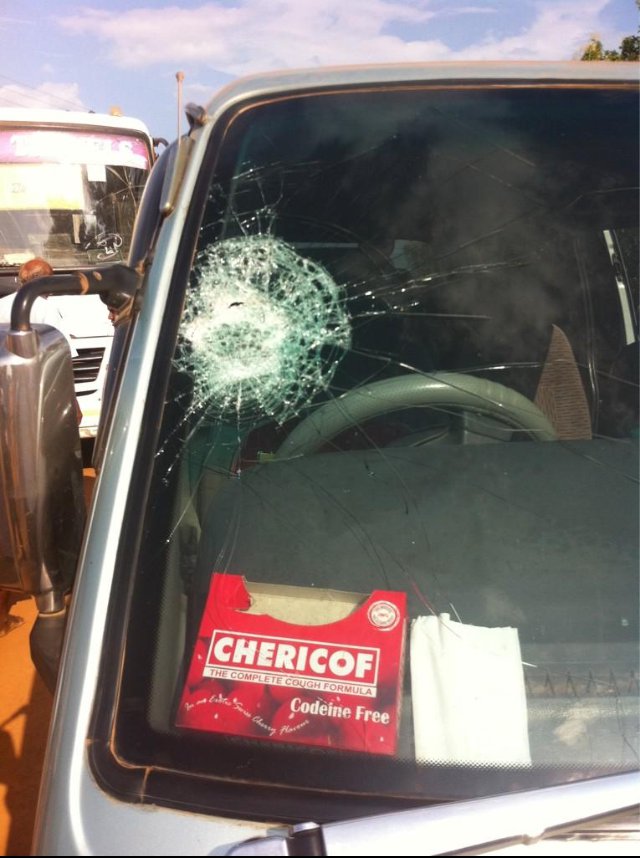Tamil protesters in Vanni intimidated by SL military
 |
|
Photograph posted on Twitter by @rkguruparan |
Hundreds of Tamil protestors who had gathered outside the district secretariat in Mullaitheevu, demanding resettlement in their village of Keappa-pulavu on Thursday, were faced with intimidation by the Sri Lankan military.
Protesting for over one and a half hours the demonstrators demanded for the occupying military to leave their homeland.
Shouting, “We want our homeland, let the military quit our homeland”, the demonstrators held banners reading, "Keappa-pulavu is our village, SL army quite today! Let us go back and resettle."
As the protest got underway, the civil society activist, Guruparan Kumaravidvel, reported via Twitter, that there was a heavy Sri Lankan Army intelligence presence. Shortly afterwards, he reported that the TNPF's General Secretary's car had been attacked whilst returning from the protest on Ottuchuttan Road, and the vehicle carrying the TNPF leader Gajendrakumar Ponnambalam was also attacked near Theravil on the way back from Mullaitheevu.
 |
|
Photograph posted on Twitter by @rkguruparan |
TamilNet reported that the Sri Lankan military was videoing protestors, coordinating gangs of thugs to throw dirt at the protestors, and had arranged for individuals to come to the venue and shout in opposition against the protesters.
Non-governmental media persons who recorded the event were also attacked later on in the day by unknown gangs, said TamilNet.
Speaking to media, Gajendrakumar Ponnampalam expressed his concern over the validity of the findings in the upcoming OHCHR report.


